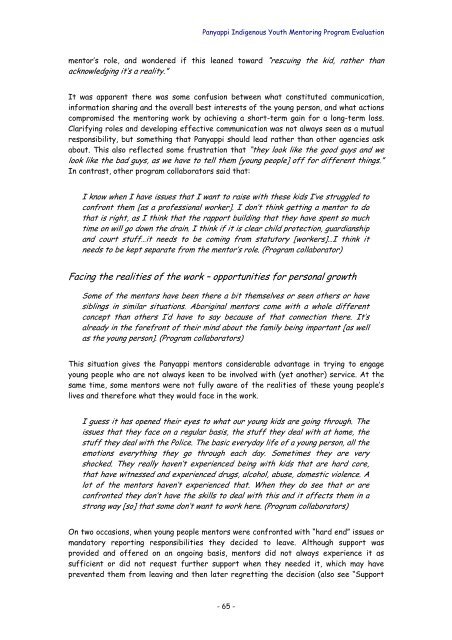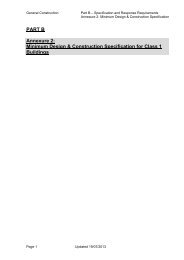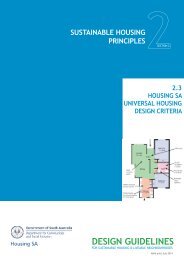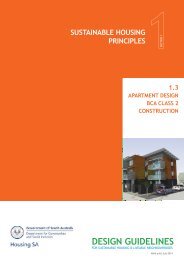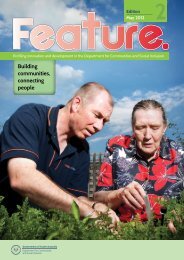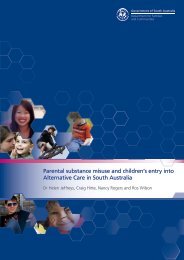Panyappi Indigenous Youth Mentoring Program Evaluation
Panyappi Indigenous Youth Mentoring Program Evaluation
Panyappi Indigenous Youth Mentoring Program Evaluation
Create successful ePaper yourself
Turn your PDF publications into a flip-book with our unique Google optimized e-Paper software.
<strong>Panyappi</strong> <strong>Indigenous</strong> <strong>Youth</strong> <strong>Mentoring</strong> <strong>Program</strong> <strong>Evaluation</strong><br />
mentor’s role, and wondered if this leaned toward “rescuing the kid, rather than<br />
acknowledging it’s a reality.”<br />
It was apparent there was some confusion between what constituted communication,<br />
information sharing and the overall best interests of the young person, and what actions<br />
compromised the mentoring work by achieving a short-term gain for a long-term loss.<br />
Clarifying roles and developing effective communication was not always seen as a mutual<br />
responsibility, but something that <strong>Panyappi</strong> should lead rather than other agencies ask<br />
about. This also reflected some frustration that “they look like the good guys and we<br />
look li ke the bad guys , as we have to tell them [young people] off for different things.”<br />
In contrast, other program collaborators said that:<br />
I know when I have issues that I want to raise with these kids I’ve struggled to<br />
confront them [as a professional worker]. I don’t think getting a mentor to do<br />
that is right, as I think that the rapport building that they have spent so much<br />
time on will go down the drain. I think if it is clear child protection, guardianship<br />
and court stuff…it needs to be coming from statutory [workers]…I think it<br />
needs to be kept separate from the mentor’s role. (<strong>Program</strong> collaborator)<br />
Facing the realities of the work – opportunities for personal growth<br />
Some of the mentors have been there a bit themselves or seen others or have<br />
siblings in similar situations. Aboriginal mentors come with a whole different<br />
concept than others I’d have to say because of that connection there. It’s<br />
already in the forefront of their mind about the family being important [as well<br />
as the young person]. (<strong>Program</strong> collaborators)<br />
This situation gives the <strong>Panyappi</strong> mentors considerable advantage in trying to engage<br />
young people who are not always keen to be involved with (yet another) service. At the<br />
same time, some mentors were not fully aware of the realities of these young people’s<br />
lives and therefore what they would face in the work.<br />
I guess it has opened their eyes to what our young kids are going through. The<br />
issues that they face on a regular basis, the stuff they deal with at home, the<br />
stuff they deal with the Police. The basic everyday life of a young person, all the<br />
emotions everything they go through each day. Sometimes they are very<br />
shocked. They really haven’t experienced being with kids that are hard core,<br />
that have witnessed and experienced drugs, alcohol, abuse, domestic violence. A<br />
lot of the mentors haven’t experienced that. When they do see that or are<br />
confronted they don’t have the skills to deal with this and it affects them in a<br />
strong way [so] that some don’t want to work here. (<strong>Program</strong> collaborators)<br />
On two occasions, when young people mentors were confronted with “hard end” issues or<br />
mandatory reporting responsibilities they decided to leave. Although support was<br />
provided and offered on an ongoing basis, mentors did not always experience it as<br />
sufficient or did not request further support when they needed it, which may have<br />
prevented them from leaving and then later regretting the decision (also see “Support<br />
- 65 -


